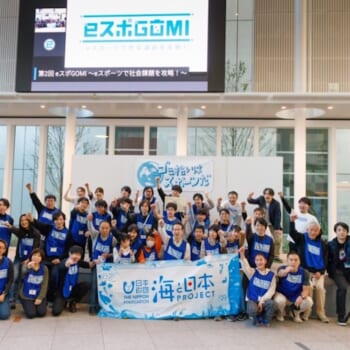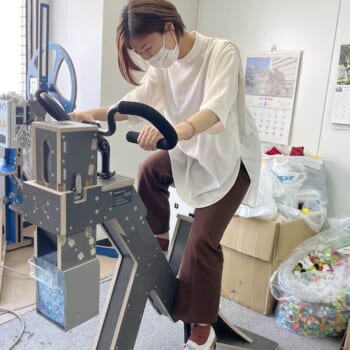
Regenerative Kelp Farming for Blue Carbon in Yokohama
- On 2022/6/11
Trees have the ability to absorb CO2, but did you know that kelp has similar powers too? Kelp can absorb five times as much CO2 as cedar, plus it can grow up to four meters in just four months! Such hidden powers didn’t get unnoticed by Sachiumi Heroes director Tatsunori Tomimoto. Since 2015, Tomimoto has been working with local fishers of Kanagawa Prefecture’s Yokohama’s Kanazawa Fishing Port to promote kelp farming as a positive way to fight global warming and its consequences.
People originally used kelp to regenerate the sea in Ago Bay in Mie Prefecture. After seeing Ago Bay’s success, Tomimoto decided to start his activities in the Kanazawa region. According to Tomimoto, global warming has caused the sea environment to change drastically.
“Global warming has caused the temperature of seawater to rise and the ocean current to change,” said Tomimoto. “Consequently, algae-eating animals such as sea urchins and abalone have eaten up all the seaweed and are running out of food. This kind of sea desertification is becoming a serious problem in many seas around the country.”
In other words, oceans can no longer maintain their natural environment on their own. That’s where Tomimoto’s activities come in. By cultivating kelp in the ocean, he thinks he can increase plankton to feed creatures in the deserted sea.

“By doing so, the ecosystem will regain circulation, and the environment of the sea will improve,” he says.
The amount of CO2 absorbed by kelp is about 16 tons per hectare a year. Moreover, kelp can be cultivated both in the sea and on land, making it the perfect plant for absorbing CO2.
Tomimoto convinced local fishers to cooperate in kelp farming, but in the beginning, some weren’t so sure that it would become a proper business. But since 2011, the city of Yokohama has been initiating the Yokohama Blue Carbon Project based on the concept of blue carbon ecosystems advocated by the United Nations. Chosen by the Japanese government as an environmental future city to counter global warming, the city has been transitioning from a regular port city to a marine ecological city. In no time, a framework for everyone to work together on aquaculture was well underway.
The kelp they produce is unique too! Kelp of Kanazawa is called “Bunko Konbu,” whose characteristics lie in the fact that it can be eaten raw.
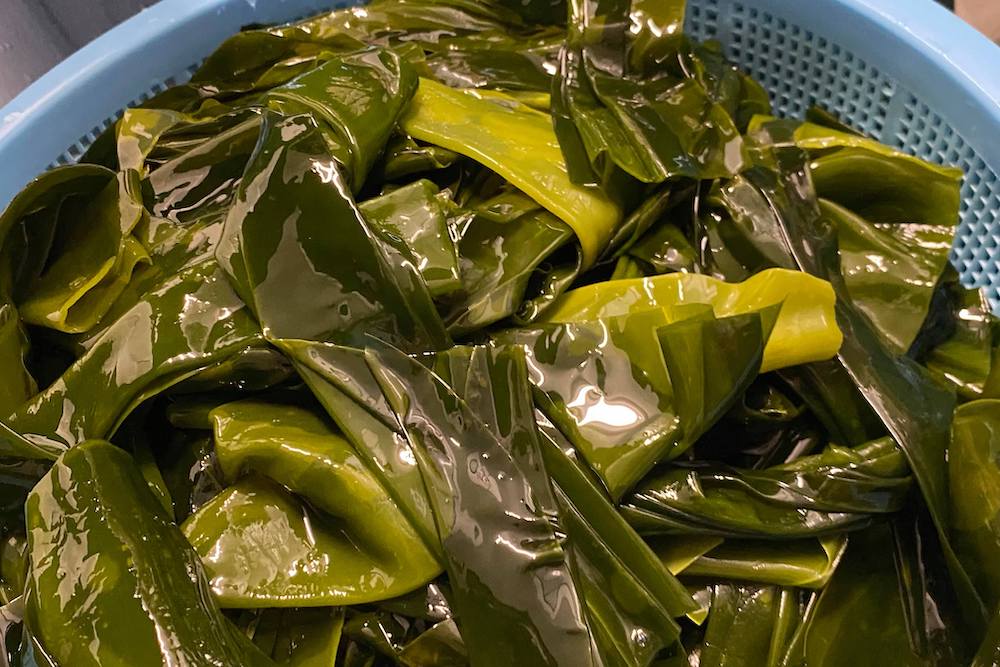
“It is mainly used for making soup stock,” Tomimoto explained. “Its soft and mellow taste gives its uniqueness. It can even be eaten raw!”
Bunko Konbu turns a bright, glossy green when boiled. The surprising combination of ‘Yokohama and Konbu’ is now attracting attention in many genres. For example, Bunko Konbu was used as soup stock in “Yokohama Vegan Ramen,” a local noodle menu made from Yokohama ingredients served at restaurants in Kannai and Bashamichi.
That’s not all. Recently, Tomimoto has been working on a project to use kelp as fertilizers by sprinkling it in fields. Furthermore, focusing on the minerals contained in kelp, he found a way to use Bunko Konbu for “Konbuyu” (kelp bath) in public baths in Tokyo and Kanagawa Prefecture.
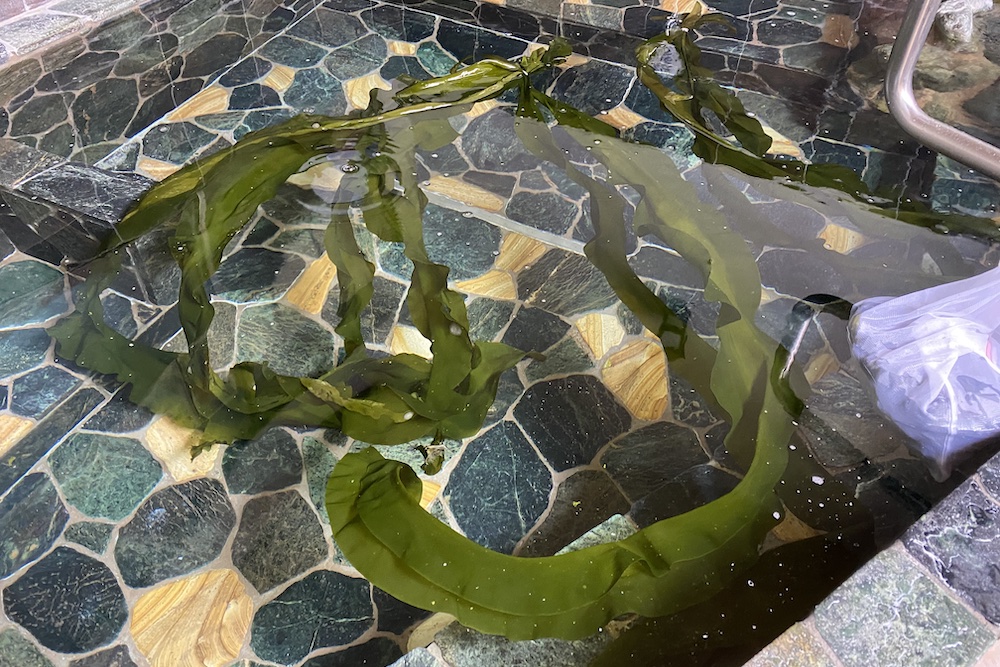
Using the minerals of kelp in a public bath.
“Kelp is not only nutritious for sea creatures but is also nutritious for us humans too,” said Tomimoto. “It’s a heroic existence for all living things.”
Tomimoto said they are even trying to find a way to upcycle kelp used in public baths as materials for making Japanese paper. Their attempt is to make the most of every bit of kelp they raise.
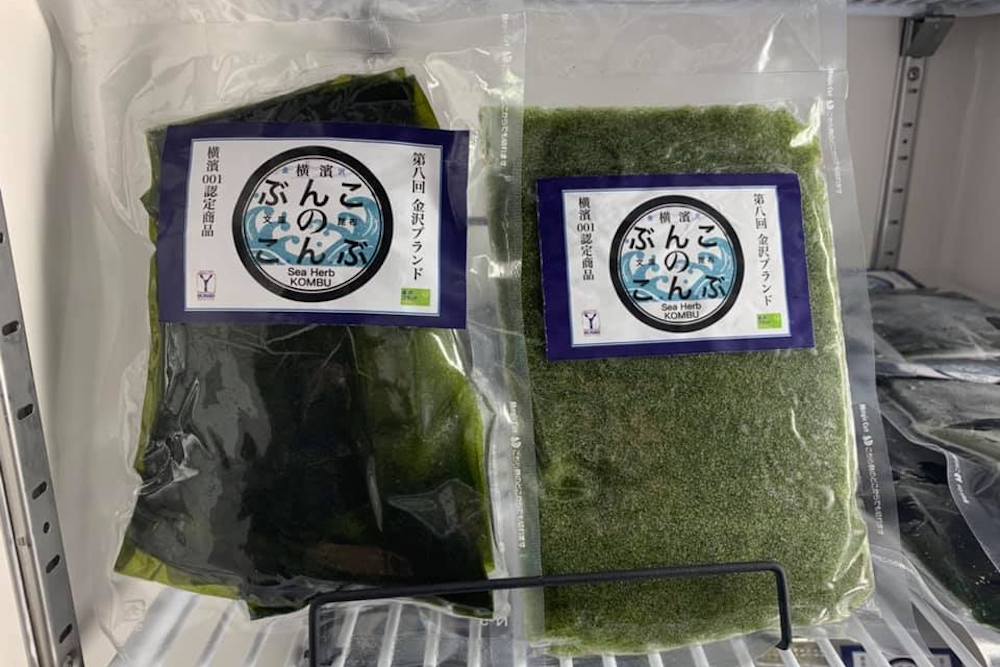
Through activities like these, Tomimoto, whose nickname is now “Konbu Prince” in Kanazawa, strives to protect the environment through kelp. Sachiumi Heroes, which continues to disseminate efforts to change society from Yokohama, received the 27th Yokohama Environmental Activity Award in 2020 in recognition of its activities.
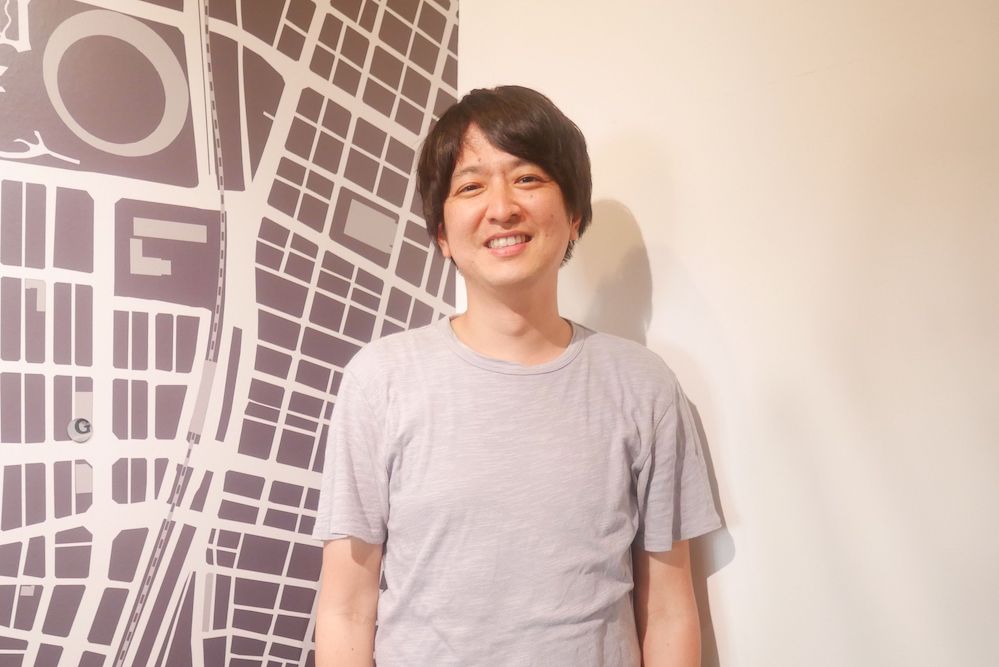
Sachiumi Heroes director and Konbu Prince, Tatsunori Tomimoto.
In the future, Tomimoto says that he wants to put more effort not only into food, but also into the environment and society.
“Fishing has prospered as an ‘industry for catching,’ but now I think it needs to strengthen its role as an ‘industry for growing,’” said Tomimoto. “We will continue to believe in kelp’s possibilities and proceed with our efforts to save the Earth’s environment.”
Kelp is no doubt an indispensable part of Japanese food. The realization that we may be able to save the Earth’s environment by growing and consuming such a familiar food ingredient that we come across every day on our dining table provides us with a tinge of hope.
This article is originally published on Zenbird.






